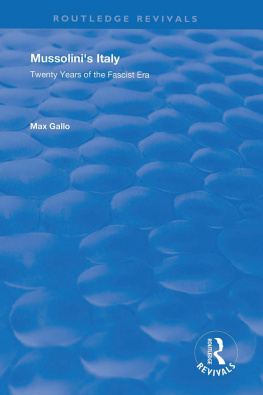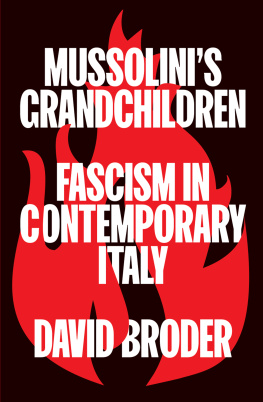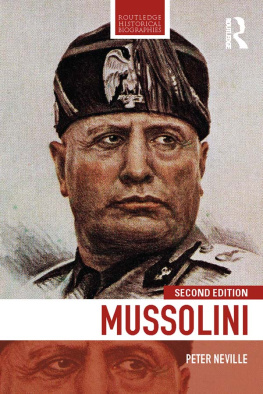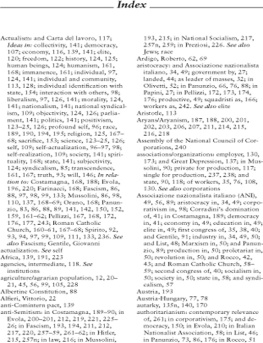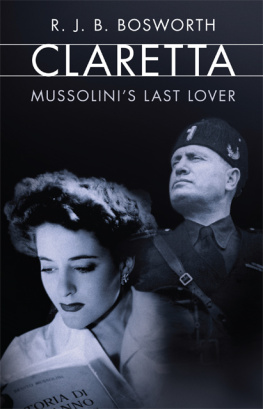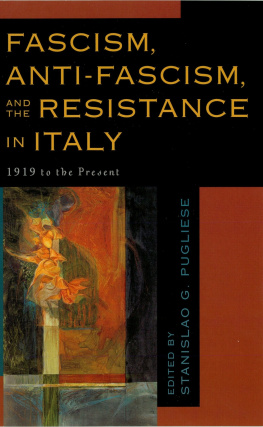First published in 1973 by Abelard-Schuman Limited
This edition first published in 2018 by Routledge
2 Park Square, Milton Park, Abingdon, Oxon, OX14 4RN
and by Routledge
52 Vanderbilt Avenue, New York, NY 10017, USA
Routledge is an imprint of the Taylor & Francis Group, an informa business
1973 Taylor & Francis
Librairie Acadmique Perrin
All rights reserved. No part of this book may be reprinted or reproduced or utilised in any form or by any electronic, mechanical, or other means, now known or hereafter invented, including photocopying and recording, or in any information storage or retrieval system, without permission in writing from the publishers.
Publisher's Note
The publisher has gone to great lengths to ensure the quality of this reprint but points out that some imperfections in the original copies may be apparent.
Disclaimer
The publisher has made every effort to trace copyright holders and welcomes correspondence from those they have been unable to contact.
A Library of Congress record exists under ISBN:
ISBN 13: 978-0-367-11242-4 (hbk)
ISBN 13: 978-0-429-02551-8 (ebk)
MUSSOLINI'S ITALY
Librairie Acadmique Perrin
This translation 1973 Macmillan Publishing Co., Inc., New York First published in Great Britain by Abelard-Schuman Limited 1974
ISBN O 200 72140 2
All rights reserved. No part of this publication may be reproduced, stored in a retrieval system, or transmitted in any form or by any means, electronic, mechanical, photocopying, recording or otherwise, without the written permission of the publisher.
Abelard-Schuman Limited
450 Edgware Road
London W2
24 Market Square
Aylesbury Bucks
Printed in Great Britain by Offset Lithography by Billing & Sons Ltd., Guildford and London
A HALF-CENTURYthat is precisely what lies between us and Mussolini's accession to power in Italy. At that time the word Fascism had barely been born. No one really knew that with the March on Rome on October 28, 1922, a new epoch of the twentieth century was beginning. Mussolini was seen as merely one of many leaders more extreme, perhaps, more vehement; but it was assumed that he would blend into the parliamentary landscape after a few thunderous speeches. And, besides, gradually it had to be conceded that Il Duce had a new kind of politics.
Now fifty years have passed. Passions have not burned out, but it has become possible to look at that Fascist Italy with a view to understanding it rather than damning it or praising it. It is possible to X-ray the personality of II Duce while avoiding peremptory judgments.
And the man II Duce is fascinating. In the course of his life, which began at the most radical point of the extreme Left and ended in a summary execution, one encounters the pathetic side by side with the bombastic, the shrewdness of a great politician with the blindness of a fanatic. But one finds as well the mediocrity that is part of the normal man who, unlike Hitler, is not swept off balance by a political delirium.
Essentially, even in his worst moments, even at the peak of his cruelties, Mussolini was always a man torn. Torn between the drive of his desire for glory and his fear, his intuition of what was going to happen. For he sensed keenly, somewhere inside himself, that World War II could end only in defeat, that Fascist politics was chiefly a stage-setting, that the government that he instituted in 1943that doomed Fascist Republic, the creation of the Nazis had no reality.
In this complexity of Mussolini's character is the explanation why his story borders at the same time on tragedy and on farce. Here too is the explanation why that story, in the end, is closer to us than is Adolf Hitler's. When we look at Der Fhrer we are fascinated, as we are fascinated when we stand face to face with monstrosity, with Evil. When we look at Mussolini we are looking at a man. Great and commonplace. Perceptive and blind. Intuitive and limited. Criminal and victim.
A man who was drunk on power and who played with its appurtenances as if he were a child whose dream had come true: he appeared on balconies, he thrust out his chin, he paraded with raised arm between two rows of cattle at an agricultural fair. But he was also the man who put forth a few excellent ideas that would find realization in the years between the two World Wars: corporativism, that economic system that was meant to transcend both capitalism and Socialism and that was a Fascist propaganda success. It was he who brought into being those enterprises that still exist today in Italy and in which private investment and state capital are commingled.
And it was the same man again who was caught in the teeth of tragedy and cowardice when, at the end of the war, he sacrificed his own son-in-law, Count Galeazzo Ciano, who was executed by a Fascist firing-squad in Verona.
Here this scene blends with some of Verdi's operas, with a whole Italian tradition that dallies with violence, that shifts from the farcical to the heroic, from smiles to tears, from friendship to treachery. Mussolini has been called a hero and a villain of opera. He was thoroughly Italian. He embodied the defectsand also the qualitiesof an inventive, warmhearted people that was still in the process of being born as a nation in the decades between the wars and this in spite of the antiquity of a culture that is at the very source of western civilization.
But Italy had not achieved national unity until 1870. The First World Warthe 1914 warwas her first great national war. And Mussolini appeared immediately afterward, a kind of Nasser of the years between the wars. He renewed Italians' pride in themselves.
That was why he was popular for so long in the United States, for example. No one who lived in a Little Italy, dominated for years, more or less contemptuously, by Irish and WASPs, could have any notion of the domestic reality of Mussolini's Italy. They knew only that the country ruled by II Duce was respected, and that it was successful in some of its undertakings. When Italo Balbo arrived in New York at the head of an aerial squadron that was going around the world, his reception was hysterical. Italian-Americans reacted like men who had been wounded in their national pride.
But the war came, and eyes were harshly opened. Mussolini exposed his incapacities, his blindness.
Nonetheless, that ultimate failure cannot make us forget that he was an innovator, an inventor. The inventor of Fascism: a movement that proliferated in the world like a cancer. And, on October 28, 1942, Hitler could only acknowledge the accomplishments of Il Duce: "I am convinced that your historic March on Rome," he wrote to Mussolini, "created a turning point in the history of the world. When you were leading the Fascist Revolution to victory, Duce, I was still battling against fortune's reverses, and my struggle ended in a serious defeat and for myself, personally, imprisonment for more than a year."

